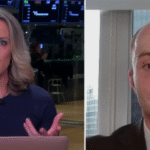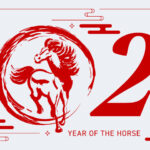Beyond The Headline: Key Takeaways From The US Senate Bill

- Bill S.945, passed by the Senate last week, states any US-listed Chinese company that does not allow the Public Company Accounting Oversight Board (PCAOB), to review their audited financials over three consecutive years could be delisted.
- According to PCAOB data, 90% of US-listed Chinese companies were audited by the Big Four accounting firms.
- We believe this legislation provides ample room for a thoughtful resolution, without harming US-listed Chinese firms and their US investors.
- Today US investors own over $1 trillion of US-listed Chinese firms.
Bill S.945, passed by the Senate last week, states any US-listed Chinese company that does not allow the Public Company Accounting Oversight Board (PCAOB) to review their audited financials for three consecutive years could be delisted1. We believe this legislation creates the appearance of a tough stance, but leaves ample room for a thoughtful resolution, without harming US-listed Chinese firms or US investors. Unfortunately, there have been several misleading headlines and interpretations of the news. Below we have summarized the key facts surrounding this bill.
If the Bill passes in the House of Representatives there will first be a period to work out the details followed by a three-year window for US-listed Chinese companies to submit their audited financials to the PCAOB. This structure allows for ample time to resolve differences and put policies in place between the PCAOB and China’s regulators.
The Bill may provide a real opportunity for increased cross-border cooperation. This legislation was brought on by the Luckin Coffee accounting fraud, which was discovered and reported by the firm’s auditor, Ernst and Young (E&Y), during its annual audit. The company’s actions have elicited strong condemnations from both the U.S. and China, with the China Securities Regulatory Commission (CSRC), China’s equivalent of the US SEC, stating, “a listed company, no matter where it is listed, shall strictly abide by the laws and norms of the relevant market and perform its obligation of information disclosure truthfully, accurately and completely2.”
Increased cooperation regarding the prosecution of those responsible for the Luckin Coffee fraud and increased transparency into audited financial results of US-listed Chinese companies by the PCAOB seem like areas where both sides can find alignment. In the twelve months ended December 31, 2019, 17 PCAOB-registered accounting firms in mainland China and Hong Kong signed audit reports for 188 public companies with a combined global market capitalization (U.S. and non-U.S. exchanges) of approximately $1.9 trillion.
It is important to note that the PCAOB is not itself a primary auditor; it is a nonprofit corporation established by Congress to oversee public companies’ audits to protect investors and the public interest. All US-listed Chinese companies must meet the listing requirements of US exchanges like NASDAQ, the New York Stock Exchange (NYSE), and the NYSE American Stock Exchange. Not having been audited by the PCAOB, does not mean that a firm has not met the auditing standards and listing requirements of US exchanges. For all audit work performed between 2018 to 2020, 90% of US-listed Chinese companies were audited by Big 4 (Deloitte, PricewaterhouseCoopers (PwC), Ernst & Young (E&Y), and KPMG) 9% done by BDO and Grant Thornton (also top tier) and two others3.
While the risk of fraud can never entirely be avoided (look at Enron and WorldCom in the US) we do not believe a single bad actor, like Luckin Coffee, is indicative of all US-listed Chinese companies. These firms have generated a tremendous amount of value for US shareholders for well over a decade. We believe most US-listed Chinese companies, in particular Chinese internet companies with strong international reputations, like Alibaba, will welcome increased shareholder transparency into their accounting practices.
A recent report by the U.S.-China Economic And Security Review Commission on companies listed on the NASDAQ, NYSE, and NYSE American stock exchanges showed that there were 156 Chinese companies listed on these exchanges with a total market capitalization of $1.2 trillion4. This statistic means that today US investors own over $1 trillion of US-listed Chinese firms. The PCAOB’s mandate is to protect those investors, not rush into unnecessary delistings.
Alibaba was 9.43% of KWEB net assets as of 5/21/2020
- Congress.gov, “S.945 – Holding Foreign Companies Accountable Act”, 05/20/2020
- Xinhua, “Chinese securities regulator condemns Luckin coffee for accounting fraud”, 04/03/2020
- Data from Public Company Accounting Oversight Board as of 04/01/2020 retrieved 05/22/2020
- U.S.-China Economic And Security Review Commission, “Chinese Companies Listed on Major U.S. Stock Exchanges”, 02/29/2019 retrieved 05/20/2020.
R_KS_SEI










